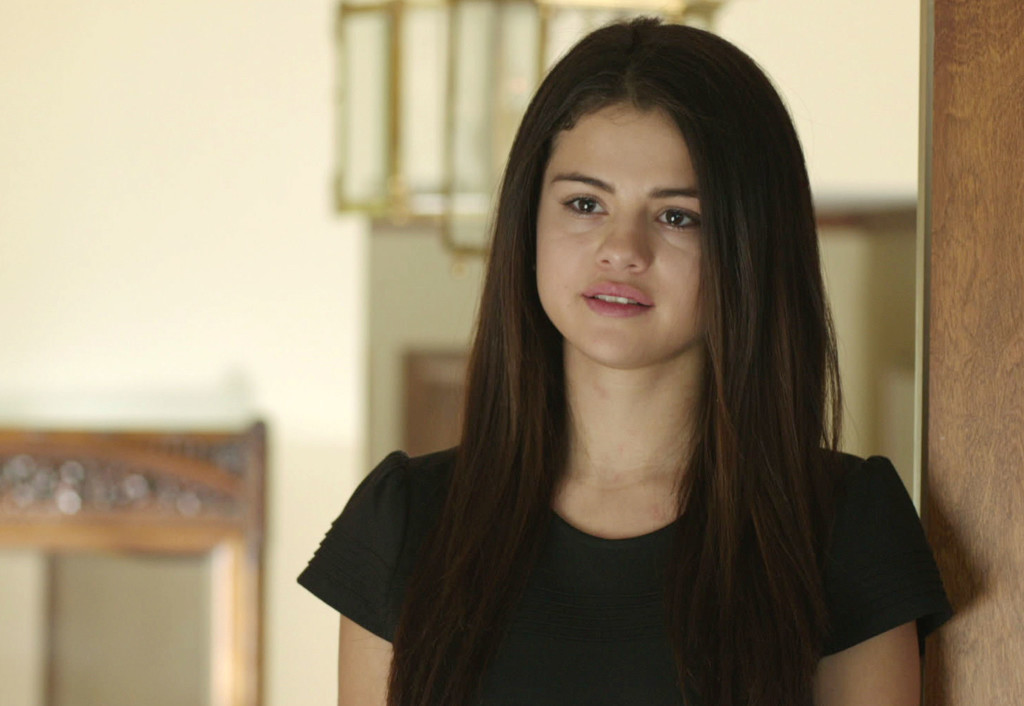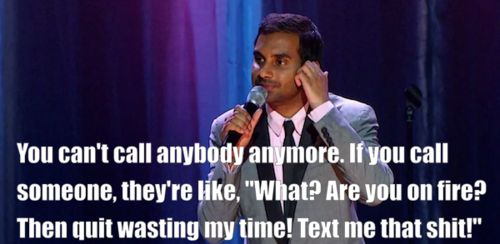Genre: Thriller
Premise: A young woman and her estranged father go rock-climbing to try and repair their relationship, but when they get stuck, it doesn’t look like they’ll survive the night.
About: This script sold to Blumhouse earlier this year. The writers, Gregg Maxwell Parker and Sean Patrick Finegan, two young men who are big fans of the middle name, have one produced credit, the recent Ethan Hawke – Selena Gomez starrer, Getaway.
Writers: Gregg Maxell Parker & Sean Patrick Finegan
Details: 94 pages
I’m a little nervous about the fact that today’s writers scripted the Selena Gomez-Ethan Hawke movie, Getaway, which, on last count, had a 2% rating on Rotten Tomatoes. Now to be fair, I haven’t seen the movie so I don’t know if it’s any good, AND the writing process on every movie can be chaotic, so who knows if some producers didn’t demand ridiculous changes, screwing up the next Citizen Kane.
That may sound ridiculous but I happen to know of a movie that came out recently (I have to be vague cause I don’t want to get the writer in trouble) where the writer told me that they carefully orchestrated a screenplay over an entire seven months before the producers decided with two weeks left before production that they wanted to scrap the whole thing and start over. So they did a page 1 rewrite in two weeks. The results, as the writer informed me, were about what you’d expect. And he didn’t love that his name was attached to it (outside of the paycheck, of course).
I know why this sort of thing happens. When people get to a decision point where they actually have to do the thing that starts costing money – shooting – they start doubting everything out of fear. And all those risks they took that made the script so unique? Those go out the window in favor of a safer more traditional story.
You’re probably saying, “Surrrrre Carson. Getaway was probably genius before the ‘system’ – quote unquote – ruined it. Only then did it tumble to Adam Sandler Rotten Tomato territory.” And I’d say you had a point. But the reason I still want to review Free Fall is because it exists in one of the most bankable genres still available to spec screenwriters – the limited-location thriller and/or horror with a hook. If you can write one of these (The Gift, The Purge, Creep, the upcoming Bed Rest), you can sell it and begin your career. So I don’t know about you. But I’m going to go into this one with an open door mind. I just hope Selena Gomez doesn’t shut it in my face.
18 year-old Grace hasn’t been back to school since her mother died a few months ago. She stays at her grandparents’ place, and the only time she gets out is to do her favorite thing in the world: rock climbing. Her grandparents are concerned enough about her mental health that they engineer a meet-up with Grace’s estranged father, Matt.
Matt’s 38 and is about as successful in life as he is as a parent. He’s one of those guys that gets a lot of big ideas, starts on them, before quitting every single time. It may go unspoken, but both Matt and Grace know that Matt’s quit on their relationship too.
Which is why he’s here. He wants to give it one last shot. But Grace isn’t hearing it, and after daring her father to join her for a practice climb at a local-indoor facility, she decides to take it one step further. She’s doing a climb a local rock-face and if he’s serious about mending their relationship, he’ll join her.
The two meet up with a local instructor, Jason, and start the climb. As you might imagine, there’s a storm moving in (there’s always a storm moving in!), and they have to get to the top before it pummels them. But when Matt makes a crucial mistake, it results in Jason falling to his death, leaving Matt and Grace up on a rock-face alone, a thousand feet from the ground, and on the most difficult leg of the climb.
Things get worse when Matt breaks his leg during an accidental plunge, descending his already low climbing level into “I’m fucked” territory. Oh, and did I mention Matt is afraid of heights? While the two map out their impossible escape, they rehash old family problems, Matt’s failure as a father, and mom’s death. If they don’t figure something out, these might be the last conversations they ever have.
When you look at Free Fall as a screenplay, you’re amazed at how much it does right. It’s got the trendy hot female lead. It’s got a marketable concept. It’s got a budget-friendly contained location. Despite that contained location, it manages to feel like a bigger idea. It’s got a ticking time bomb. It’s got a classic unresolved relationship between its two leads. It’s got impossible odds, lots of obstacles, lots at stake. And the writing? You could teach a class on how to write a lean and mean spec with this script.
But here’s the reality of this climb: A script still has to have a heart. A lot of people think I’m all about the rules and the technique, and make no mistake, that stuff is important. But a script still needs a heartbeat. It needs to be alive. And more importantly, it needs to feel like it’s REALLY HAPPENING.
When you write with great technique, you can craft a solid story. And like Free Fall proves, if you combine that with a solid marketable concept, you can sell a script. But if you want to make it past 2% on Rotten Tomatoes, you need to give your script a heart.
So how do you do that? Well, the first thing you do is you don’t treat the character aspect of your script like a box that needs to be checked. Structure? First act turns? Midpoint twist? Upping stakes? Sure, you can treat those things like checkboxes. But the characters and the emotional component they bring to the story? That’s where you have to check in with your own life experiences.
I say things on here like “create a key relationship in your story that’s unresolved.” And “make sure there’s conflict in that key relationship.” Those things are true. And that’s exactly what we get here. Grace HATES her father. Matt screwed up father duties.
BUT THOSE ARE JUST CHECKBOXES. Now it’s time to bring your own life into it. You have to find something in these characters that you yourself are going through or have been through and EXPLORE THOSE ISSUES THROUGH YOUR CHARACTERS. Then, and only then, will they feel authentic, will they feel honest, will they have a heartbeat.
A maybe not-so-perfect example is the new Aziz Ansari Netflix show, Master of None. I say “not-so-perfect” because it’s a comedy and Free Fall is a thriller, but it’s the freshest thing in my mind since I just watched it so go with me.
For those who don’t know Aziz, he’s a stand-up comedian. And his most famous bit is the miscommunication between men and women that occurs on a daily basis through the muddled world of texting. He relays multiple texting adventures where potentially wonderful relationships fell apart due to misunderstandings that you could only have through a text exchange.
Naturally, then, there’s a lot of this on his show. He keeps messing up dates or potential romantic connections because he doesn’t know what to write next or doesn’t know what the girl means with a text. And for anyone who’s gone through this ritual themselves, it’s a hilarious portrayal of one of the most frustrating aspects of dating in the digital age.
But here’s my point: Every one of these moments on Master of None feels honest because they’re clearly things that Aziz deals with in his daily life himself. You know he really spends an entire day mentally weighing what the best return text should be to a girl saying, “Hi.” So when we see it in the show, there’s a truth to it that elevates the story beyond a technical checking of the box.
And that was my issue with Free Fall. I never got the sense that Grace or Matt was a real person. And I certainly didn’t feel like the relationship was real. I felt like they were crafted for the sole purpose of fitting into the ideal screenplay algorithm. I never got any specificity out of their relationship, like a nickname or a truly unique situation they’d experienced together. When they yelled at one another, because the writers weren’t digging into their own troubled relationships with their parents, all I’d hear was, “Conflict conflict conflict!” “Conflict!?” “Conflict conflict con….flict.” It wasn’t REAL. It was “What do the screenwriting books say we have to do now?”
And I feel bad because I don’t talk about this stuff enough on the site. That’s because what these guys have accomplished technically is great and something 90% of amateurs haven’t figured out yet. And since you need to learn that stuff before you can even get to the character stuff, I focus on that a lot. But once you’ve made it to the lucky 10%, and you’re trying to get to the final 3-5% (aka, when writers get paid), you have to figure the character stuff out.
With that said, Free Fall is a reminder that you can game the system if you’re really proficient at the craft. Come up with a good hook and write something that’s technically perfect and you can sneak in the back door. But if you want to stay inside once they find you, learn to add a heartbeat to your story.
[ ] what the hell did I just read?
[x] wasn’t for me
[ ] worth the read
[ ] impressive
[ ] genius
What I learned: Trying to explore a broken relationship in a realistic manner without basing it on your real-life experiences is nearly impossible. If you don’t feel, your characters won’t feel. This can actually help you, though. Identify the relationships in your life that contain the most conflict and use those as inspiration for the relationships in your script. Spielberg is famous for creating a disconnect between parents and children in a lot of his movies because of the scars left from his own parents divorcing when he was a child (see E.T. or A.I. to start). That’s where you’re going to find your best stuff emotionally.




